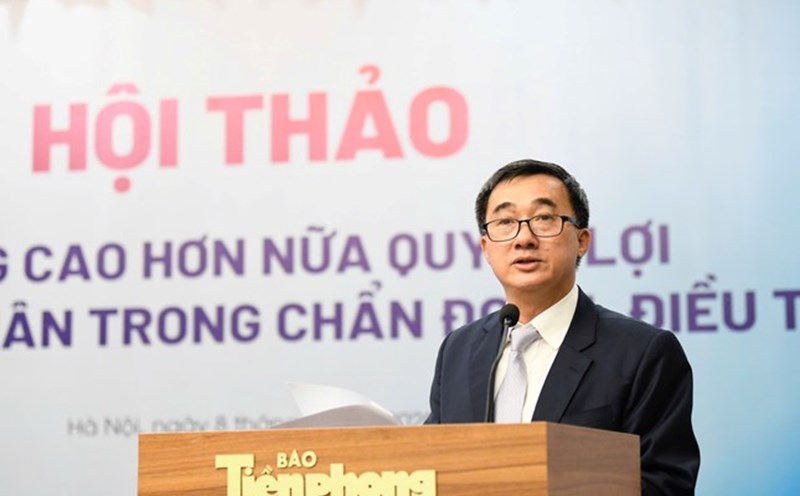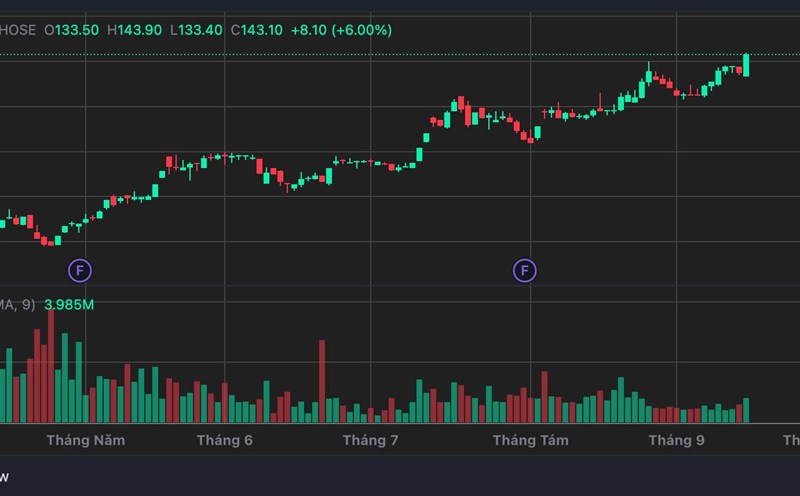Resolution 72-NQ/TW of the Politburo on protecting, caring for and improving people's health has just been issued, setting many major goals, with a long-term vision to 2045.
In which, there are three goals that are especially close and practical to daily life, receiving the attention and expectations of the majority of people.
Firstly, from 2026, each citizen will have a periodic health check-up or free screening at least once a year, accompanied by an electronic health book managed by life cycle.
Second, gradually exempt basic hospital fees within the scope of health insurance benefits according to the roadmap, giving priority to social policy groups and disadvantaged people.
Third, by 2030, 100% of commune health stations will have enough doctors, facilities and equipment; at the same time, the rate of medical examination and treatment using health insurance at the commune level will increase to over 20%.
These three goals are not only a policy commitment, but also a response to the people's long-standing desire for a fair and close healthcare system, reducing the cost burden and bringing peace of mind when sick.
Current reality shows that most people still have the habit of only going to the doctor when they have developed an illness, leading to late detection, high treatment costs and many unpredictable complications.
Upper-level hospitals are often overloaded, while grassroots health care has not yet promoted its role as a "gate". Many households fell into poverty just because of one serious case.
Compared to many countries in the region, Vietnam's average life expectancy is not low, but the number of years of living health is still limited, the rate of out-of-pocket expenses of households for health care is still high.
In that context, the three goals of Resolution 72 are truly "rescue", aiming at early disease prevention, reducing financial burdens and bringing health services closer to the people.
However, to realize these commitments, many challenges need to be clearly recognized.
First of all, it is the issue of medical human resources. Many young doctors are not interested in working at the commune level because the treatment regime is not attractive enough and the working environment lacks motivation for development. If this problem is not completely solved, the goal of 100% of commune health stations having doctors will be difficult to achieve.
Another challenge is financial resources. The health insurance fund is currently under a lot of pressure. If we expand additional free features without reforming the payment mechanism, the risk of imbalancing the fund is entirely possible.
People's trust in grassroots health care is still limited. Many people still think that commune health stations only treat mild diseases, while serious diseases must be treated at the district or provincial level. If the quality and image of grassroots health care are not improved, the goal of increasing the rate of medical examination and treatment using health insurance at the commune level will be difficult to achieve.
With the goal of free periodic health check-ups, to be feasible and sustainable, it is necessary to reform the payment mechanism and health insurance fund management towards transparency and efficiency. People, even though they are free, still have to ensure the quality of services.
The highest policy from the Politburo is already available. The remaining issue is in concrete, drastic and synchronous actions from the health sector, local authorities and the entire political system to soon turn these three practical goals into reality, bringing complete joy to the people.













